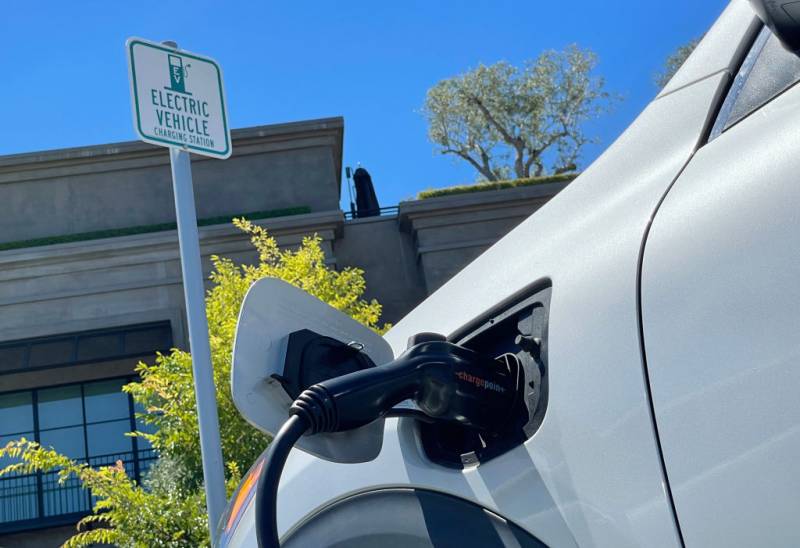The California Energy Commission expects electric vehicles to add only a small amount of power use in the next 10 years. The commission estimates that 3.7 million light-duty electric vehicles will be in use in the state in 2030, and they will account for only about 2.6% of electricity use during peak hours. David Reichmuth, senior engineer for the Union of Concerned Scientists, said EV charging can be timed to off-peak hours, especially during the day when wind and solar power are more available. Utilities will be able to send messages to cars to start or stop charging depending on electricity demand, he said.
Won't new EVs be too expensive for many consumers?
That's possible, although prices are coming down, and they are expected to get lower as costs are spread out among more vehicles and new battery chemistries are developed that don't use many expensive precious metals. Currently most U.S. EVs are targeted at higher-income luxury or pickup-truck buyers and start at $40,000 or more, beyond the reach of many. Kelley Blue Book estimates that the average price for a new electric vehicle is over $64,000, closer to the price of a new BMW or other luxury cars. But prices are starting to come down. For instance, General Motors says it will offer a small Chevrolet SUV with a starting price tag of around $30,000 that's expected to get close to 300 miles per charge. The federal government next year will offer $7,500 tax credits for EVs made in North America, bringing purchase prices down. And California is offering cash, rebates and special financing for lower-income buyers. Also, EV buyers will save on fuel and maintenance costs.
Do EVs really pollute less, given all the manufacturing and mining of metals for batteries?
Multiple studies, including some by the Massachusetts Institute of Technology, say yes. While there is pollution from mining, EVs are so much cleaner than gas vehicles on the road that it only takes a short time for them to make up for the mining. A study released this summer by the Union of Concerned Scientists looked at lifetime emissions, including the manufacturing process.
“Altogether, the lifetime emissions for an electric car or an electric pickup are less than half that of a gasoline vehicle,” Reichmuth said. The gap between gas and electric will grow as more electricity comes from renewable sources such as wind and solar, he said.
“There’s nothing that we’re going to do when it comes to aggressively promoting electrification that will be worse for the planet than burning fossil fuels,” said Margo Oge, chair of the International Council for Clean Transportation and a former top U.S. Environmental Protection Agency official.
Are other states likely to follow suit?
Currently 17 other states have adopted California's greenhouse gas emissions requirements, most on the coasts. In total they account for about 40% of all U.S. new vehicle sales. The state of Washington has already started the process to follow the EV sales requirements, and other states are expected to. It will take the other states longer to go through the process, and many don't have the electric vehicle demand or charging infrastructure that California does.
KQED's Kevin Stark contributed reporting to this story.
